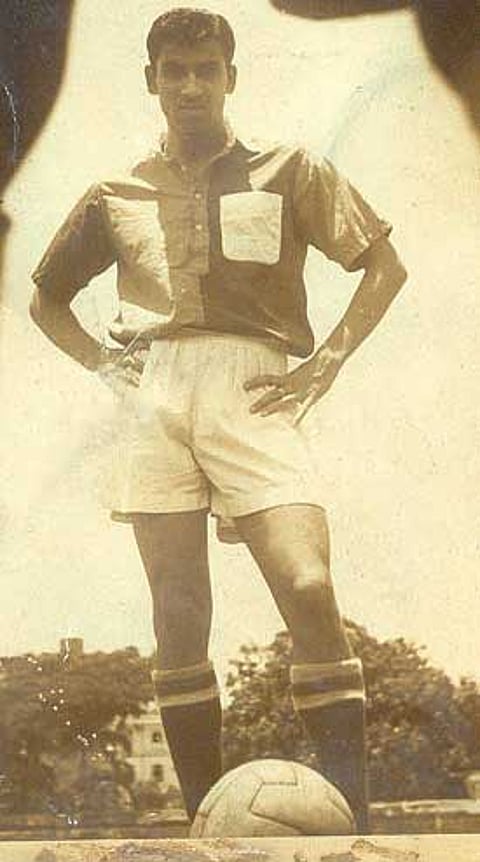Forward’s March
From a small north Bengal town called Maynaguri before shifting base to Jalpaiguri in 1941, and then finally to Calcutta

Father and daughters seem equally at ease with the family’s modest past, the story of a struggle intrinsically intertwined with India’s own, during the first few decades of nationhood. PK, as thousands of fans know him, was born on October 15, 1936, just over a decade before Indian Independence. His father Pravat held an administrative government job and lived with his large family, comprising not just his wife and seven children—including PK, the eldest son—but also his mother, paternal grandmother, aunts, uncles and cousins in a small north Bengal town called Maynaguri before shifting base to Jalpaiguri in 1941. Pravat, born in 1908, had been sent to Calcutta to study, and “chose”, says PK, “to join Scottish Church College rather than Presidency College”. (Teasingly, however, his daughters, both Presidency alumni, point out that Grandpa didn’t really choose not to go to the elite Presidency; he just didn’t get in.)
Back in north Bengal, he was able to provide a comfortable life for his family on his government salary, but PK himself has almost no recall of those shortlived days. His childhood memories are crowded with scenes from the human displacement that took place all over Bengal around the time of Partition. Says PK, “I remember my father being worried sick about what would happen if Partition took place. He, like many people who lived in Jalpaiguri and other remote regions away from Calcutta, simply did not know if these areas would remain part of India. There was a lot of fear and panic and many people abandoned jobs, lands and homes to move towards Calcutta. My father took that decision too, eventually. We left behind a house, a garden with fruit trees and farmlands. We never got them back.”
Like so many others, this clan made its way to Calcutta but had to stop en route at Jamshedpur when a relative fell ill. As PK tells it, they first lived in relatives’ houses and then finally “just about anywhere, like refugees”. He remembers the humiliation and hopelessness of days when “getting a meal would be considered lucky”. His father tried to start small businesses, but failed miserably. “The shock of poverty proved too much for him,” says PK sadly. After a period of prolonged depression, he died, leaving PK, then barely out of his teens, with the burden of supporting an entire family.

In his playing days |
The family might have slid into even deeper poverty, had it not been for his boyhood yen for football. From a very young age, PK shone in neighbourhood sports clubs haunted by poor young boys being coached by equally impoverished seniors. “It was hard to play on an empty stomach,” says PK, “but sometimes the passion to play chased hunger away and I would just keep moving, kicking the ball.” It worked for him: It was his beloved football that helped PK secure his first job in 1951, with the Indian Cable Company on a salary of Rs 135. “The general manager of the company was impressed with my ability to play football,” he explains. “I was only 15 but he understood that I and my family would perish if I didn’t get the job.” Two years later, when he was 17, he got a slightly better-paid job—at Rs 137—with the Railways as a ticket collector through the sports quota, continuing to play football all along on the side.
The rest is history. “I concentrated on playing the game well. Fame and fortune followed,” says the man who represented India in 84 international tournaments, captained the Indian football team three times in the Olympics and was recently declared by FIFA as the Indian Footballer of the Century.
Looking back, PK has little rancour or regret about the bad cards life dealt his family during his crucial growing years. What comes through instead is his overriding belief that he was in the right country at the right time. As he points out, he benefited from the opportunities that opened up for talented young sportsmen in a young nation eager to develop its prowess. “Academically, I wasn’t brilliant. I didn’t have opportunities either. But very early on, the country recognised my talent in football.” Today, as Banerjee takes a stroll around his neighbourhood every morning, swapping stories with rickshaw-wallahs, chaiwallahs and other labourers and workers, he exudes that same optimism. “They can be anyone they want to be,” he says confidently. Like him.
Tags